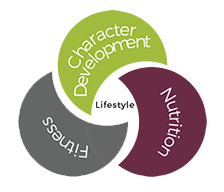Increase Your Personal Cash Flow With These Simple Steps
March 17, 2008, 3:59
Simple suggestions for improving your financial situation by controlling your expenses.
Bookmark and Share
One of the biggest problems we see in financially distressed consumers is that people waste a lot of money on the little things. Naturally, most consumers, when buying a big-ticket item such as a car or appliance, are pretty good at getting quality for their money. They look at several different models and compare prices and features before making an informed and thoughtful decision.
Then, they go out and spend much more than they need to on items like clothes, food and entertainment – the less expensive, day-to-day purchases. And that really makes no sense because most of us spend the vast majority of our cash after our bills are paid on the little things. Imagine how much better you could do financially if you applied the same consumer skills to all your purchases as you did to the big ones.
For example, let’s start with food. How many times last week did you eat a meal from a fast-food restaurant or convenience store? Many people regularly eat all of their meals that way. Although each meal seems small, usually under five dollars, if you add it all up, you’re talking about ten to fifteen dollars a day. If you eat at a sit-down restaurant, you can add even more to that.
Now suppose we take just two days worth of these high-cost meals, approximately $20 to $30 in cost, and take that money to a grocery store. With that same money, you could easily buy enough food to feed yourself for more than a week. Sure, it’s a little less convenient, especially if you make your lunch at home and take it to work. But you can easily save $50 a week, just by eating out less often. That’s over $2500 a year!
How about items around the house? The average consumer spends a lot of money on typical household items, so if you really analyze what you’re spending that money on, you can make a huge addition to your personal cash flow. For example, why spend up to 50 percent more on name-brand products when the generic store brand will do just fine?
Here’s a little experiment. Next time you’re at the grocery store, go to the pharmacy department and pick up the name brand you use on any over-the-counter product. Then find the store’s generic version of the same product and compare the ingredients. Chances are, they are exactly the same. So if you choose the name brand, you are in effect paying up to 50 percent more to help cover the costs for the marketing that helped you recognize the brand name in the first place.
The best way to save money around the house is to develop a vigilant attitude toward cutting costs, no matter how small. Turn lights out when you leave a room. Keep the thermostat higher in the summer and lower in the winter. Make long-distance phone calls during off-peak times, if you have to make them at all. And learn to do minor repairs yourself, instead of using a professional. Individually, these may not save you a lot, but if you add it all together, you’ll be amazed.
Overall, the best way to increase your personal cash flow is to be conscious of how much money you spend and why. Think about what you’re doing as a consumer, instead of simply reacting to impulses. You’ll see results immediately, as soon as you get serious about it. And don’t forget to establish an emergency savings fund and contribute to it regularly.



